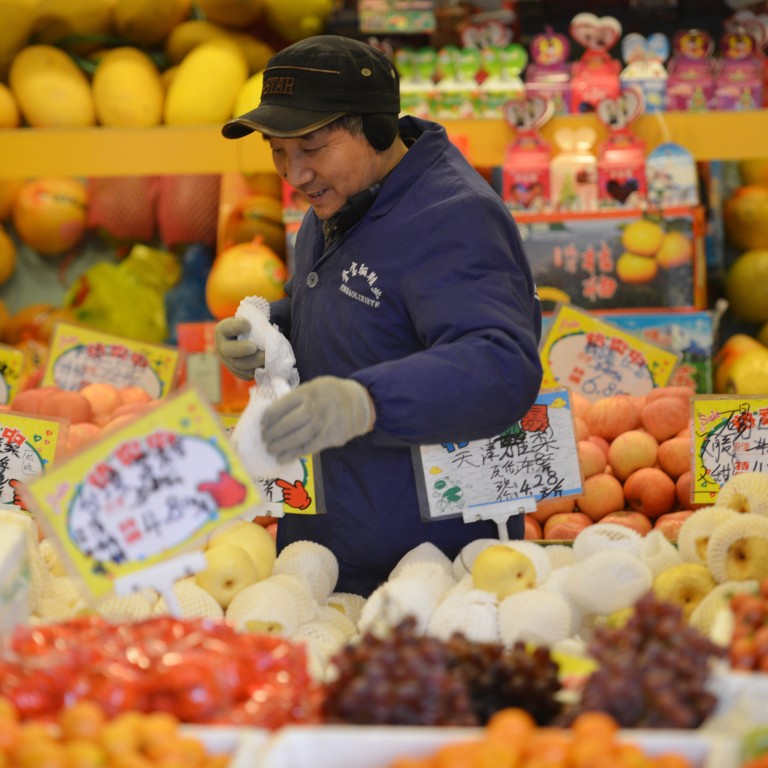
China's consumer prices rise at steady rate of 2.5pc year on year in January
Consumer price index rises 2.5pc year on year, leaving room for interest rate reform
The mainland's consumer price index climbed 2.5 per cent year on year last month, on par with the rise in December, which was the slowest increase since June.

"The moderate inflation is basically in line with expectations," said Li Huiyong , chief economist at Shanghai-based SWS Research. "Excess capacity and inadequate demand have continued to weigh on prices."
He said he expected the central bank to keep its monetary policy stance unchanged.
"Monetary policy is likely to stay prudent, instead of being loose, as authorities hope to push companies to boost efficiency in making use of their funds," Li said. "However, companies that already face rising labour and environmental-handling costs wouldn't be able afford too tight a policy."
January's inflation figure, released by the National Bureau of Statistics yesterday, was higher than the 2.0 per cent recorded a year earlier, likely because the Lunar New Year holiday began earlier this year, pushing up demand for vegetables and meat. Li said the relatively warm winter this year had curbed the rise in food prices. Food prices climbed 3.7 per cent year on year in January. Prices of non-food items rose 1.9 per cent.
The People's Bank of China said in its fourth-quarter monetary policy report that the price situation was basically stable but that upward pressures were still seen on services and agricultural products. The central bank also cautioned that a broad rise in property prices was likely to push up costs in other areas.
The producer price index fell by 1.6 per cent last month, compared with a decline of 1.4 per cent in December and a 1.6 per cent drop in January last year as overcapacity dented industrial demand.
HSBC China economist Ma Xiaoping said: "Since overall inflationary pressures remain modest, the authorities should have ample room to carry out reforms such as the deregulation of resources and utilities prices as well as continuing to push forward financial reforms including liberalisation of interest rates, the RMB [yuan] exchange rate and the capital account."

